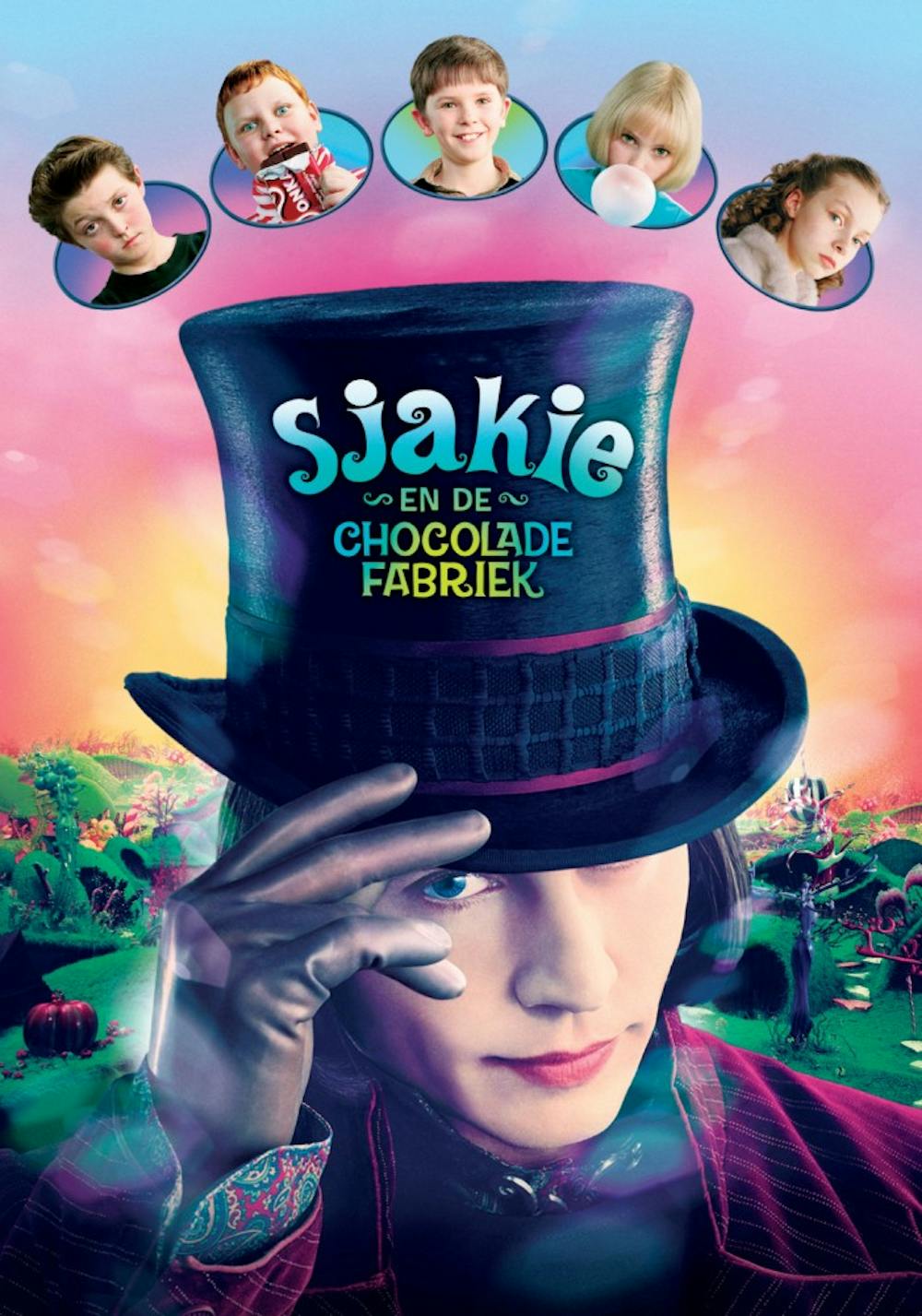 (Photo Courtesy of Paramount Pictures)
(Photo Courtesy of Paramount Pictures)With its lyrically hypnotic songs, unforgettable characters and captivating mysteries, Roald Dahl’s classically unforgettable story was forever imprinted into our hearts and inducted into cinematic history when it was released in 1971.
In the 2005 classic movie remake of "Willy Wonka and the Chocolate Factory," Tim Burton offers us an ominously militaristic take of the usually bright and happy world of candy creation. While the movie does fails to recapture the whimsically fantastic world of candy-coated mystery seen in its 1971 counterpart, it successfully manages to reflect the cold impersonality of production that modern society’s commercialistic demands have inspired.
While the first film offers us a canvas of dislikable characters that depict the various extremes of society’s parenting methods, at no point is the audience permitted to forget that these are children. In Burton’s version, the line between unruly youth and savagely violent adults is combined, giving us an uncomfortable commentary of the distortion of innocence seen in modern society’s children.
What were once misbehaved and ill-mannered children evolve into outwardly aggressive and internally polluted bullies. Personifying the animalistic devolution and vulgar appetites prevalent in 20th century, Burton’s variant of Mel Stuart’s classic film portrays the viciously greedy Veruca Salt, aggressively competitive Violet Beauregarde, video/technologically crazed Mike Teavee and the insatiably gluttonous Augustus Gloop as no more than mere bullies.
This image of children as barbarically cruel and ruthless creatures is something that has become mundane in our current society. We have become this bloodthirsty, impatient and competitive society that lives by the Veruca Salt life motto, as sung in both Burton's and Stuart's classic:
“I want the world, I want the whole world. I want to lock it all up in my pocket It's my bar of chocolate Give it to me now! I want today I want tomorrow I want to wear them like braids in my hair and I don't want to share them”
However, it is not just the children and familial dynamics that are varied in Burton’s apocalyptic recreation, but the wizard of candy land delights, too. Gone is the light-heartedly jovial personification of the confectioner. Replacing the ironically identifiable frizzy top-hatted image of Willy Wonka, with a gaunt eerily emaciated looking Johnny Depp, who favors a slicked back spookily refined pageboy cut.
In this modern adaptation, we are treated to a unique view into Wonka’s background story. For the first time, fans are offered a deeply revealing peak in the oppressive childhood, troubling origins and occupational inspirations of the beloved candy maker.
But where did this seemingly tortured incarnation of the 1971 original movie come from? Known for is paradigmatically macabre style, Burton manages to reflect the nightmarish and often overlooked habits of modern society onto the big screen through his unparalleled union of sinister and childlike.
Packed with innumerable parallels to the darkly flawed side of our current society, Burton’s adaptation serves as a deeply compelling and convicting commentary of our current society’s prevalent issues, despite its frequent deviation from the time-honored Stuart classic.
Taking both movies, message, execution and cinematic impact, for all the societal relevance and eerie mystery Burton’s film has to offer, it is Stuart’s Oscar-nominated rendition that will forever be cemented in the cinematic hall of fame and cult movie fans hearts. This is why despite the glam, thrill and narrative adaptations, it is the tried and true 1971 Stuart version that earns my “Golden Ticket.”
Reach the reporter at oprichar@asu.edu or follow her on Twitter @OliviaRichard1
Like The State Press on Facebook and follow @statepress on Twitter.




